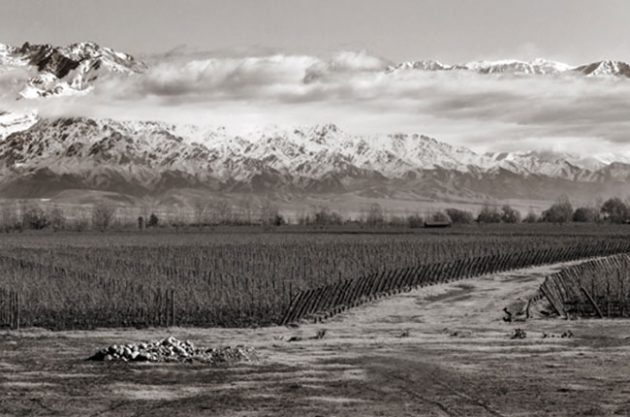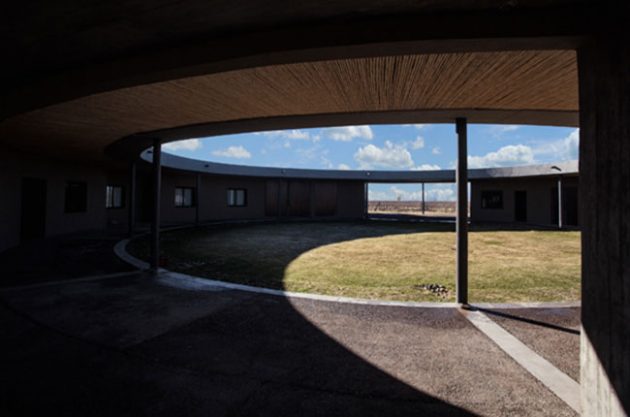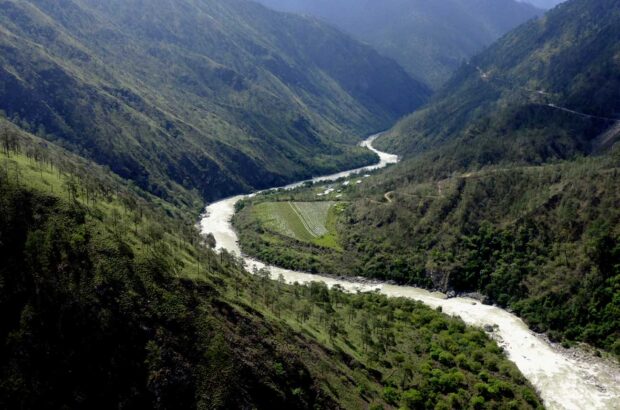Promotional feature
Find out how Uco Valley’s Luna Austral is bringing biodynamic natural wine production up to date, with tips from award-winning winemaker Alvaro Espinoza…Biodynamic Argentina: Luna Austral is a force of nature
Promotional feature
Biodynamic wine pioneers in Uco Valley
Follow the Tunuyán river through the Andes, down the Uco Valley to the little town of La Consulta, and you’ll find a pioneer in biodynamic viticulture making its mark.
Luna Austral is currently a producer of high end wines, and the only Argentinean winery full Demeter certified, this means that all its process, vineyards and all its wines have got this certification, and they are leading the way for the region’s biodynamic wine scene.
But the biodynamic approach is not a new path for Luna Austral; it’s the founding philosophy. Since its inception in 2008, agronomist Mario Toso and his team have championed the use of biodynamic practices, to harness the power of a challenging terroir and drive that life force into their wines.

Irrigation in the vineyard
Bringing biodynamic up to date
Toso has adapted the original biodynamic standards set out by Austrian philosopher Rudolf Steiner in the 1920s, and brought them up to date in his 20 hectares of high altitude vineyards. The results are vibrant and distinctive wines, free from chemicals, with each vintage bringing a unique expression of the year it was made.
Luna Austral operates on the ethos, ‘nature is our director, and we are its most devoted performers’, striving for a harmony that’s reflected in the very architecture of their winery — built as a yin and yang symbol.
Their current wines include a single varietal Malbec, and a blend of Merlot, Cabernet Franc and Malbec — named Sintonia, or ‘Tuning’, relating to winemaking in harmony with nature.
The composer of this harmony is Alvaro Espinoza, Luna Austral’s winemaker and close friend of Toso. The duo have been working together for over a decade, united in their belief in sustainable and biodynamic enology.

Mario Toso (Agronomist) and Álvaro Espinosa (winemaker) tasting grapes before harvest
How to grow biodynamically — Top five tips from the winemaker
Espinoza comes from a family of winemakers, but he cut his teeth in Chile before moving on to Bordeaux, where he earned his National Diploma of Enology. In 2015 he was recognised by Decanter as one of the top 50 most influential winemakers in the world.
Find a unique microclimate
La Consulta is 900 metres above sea level and enjoys a microclimate of hot days with intense sun exposure followed by cool dry nights — creating wines with vibrant fruit, supple tannins and good acidic structure, requiring minimal intervention.

Respond to nature
Each year is different, so it’s important to adapt our winemaking in response to the unique climate and conditions. We monitor soil of the vineyard throughout the year and add homeopathic preparations like camomile and silica, to activate the soil and create dynamic wines.
Unite plant and animal kingdoms
Biodynamic standards prohibit synthetic fertilisers, so the key is in our compost. We blend animal manure and plant matter from our farming community to create a rich all-natural mix of microorganisms and bacteria. These generate nutrients that work with biodynamic ingredients to enliven the minerality of the alluvial and calcareous soil of La Consulta.

Hand selection
Due to the microclimate, harvesting takes place very early in the morning when temperatures are low. The clusters are brought straight to the winery, where the team carefully selects the best berries by hand to ensure quality and freshness.
Minimal intervention in the winery
The winery is designed to allow for minimal intervention is the winemaking processes. It’s powered by gravity, meaning that following hand selection the berries move through through the winery with minimal interference. Concrete eggs are used to create purely terroir and fruit driven wines.
This content has been provided by Luna Austral, as part of a sponsored campaign on Decanter.com with Wines of Argentina.
More from Wines of Argentina:

Extreme Argentina: New limits, new terroirs
What's changing...

How Malbec shows Argentina’s diverse terroirs

Argentina’s new Geographical Indications: providing precise limits for wine.
What's changing...?

Beyond Malbec: Three wine styles only Argentina can offer the world
There's more to Argentina than Malbec....

Top Argentina winery restaurants
High-end gastronomy meets outrageously delicious wines...

Seven rising stars of Argentinian winemaking
The ones to watch...







